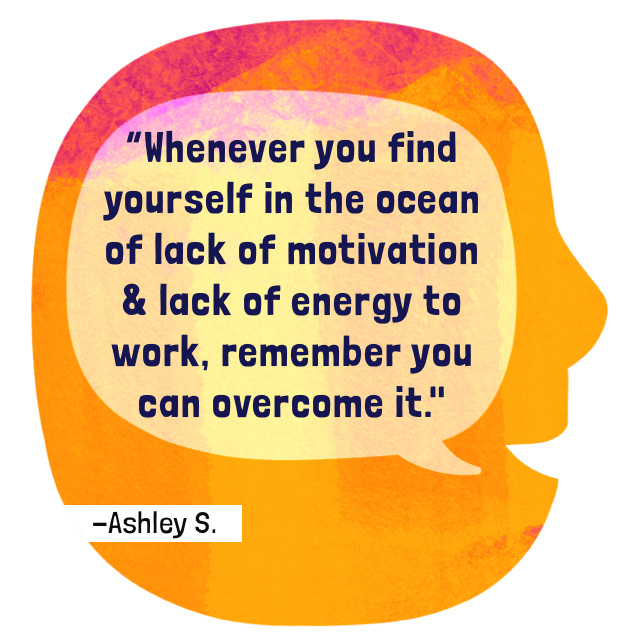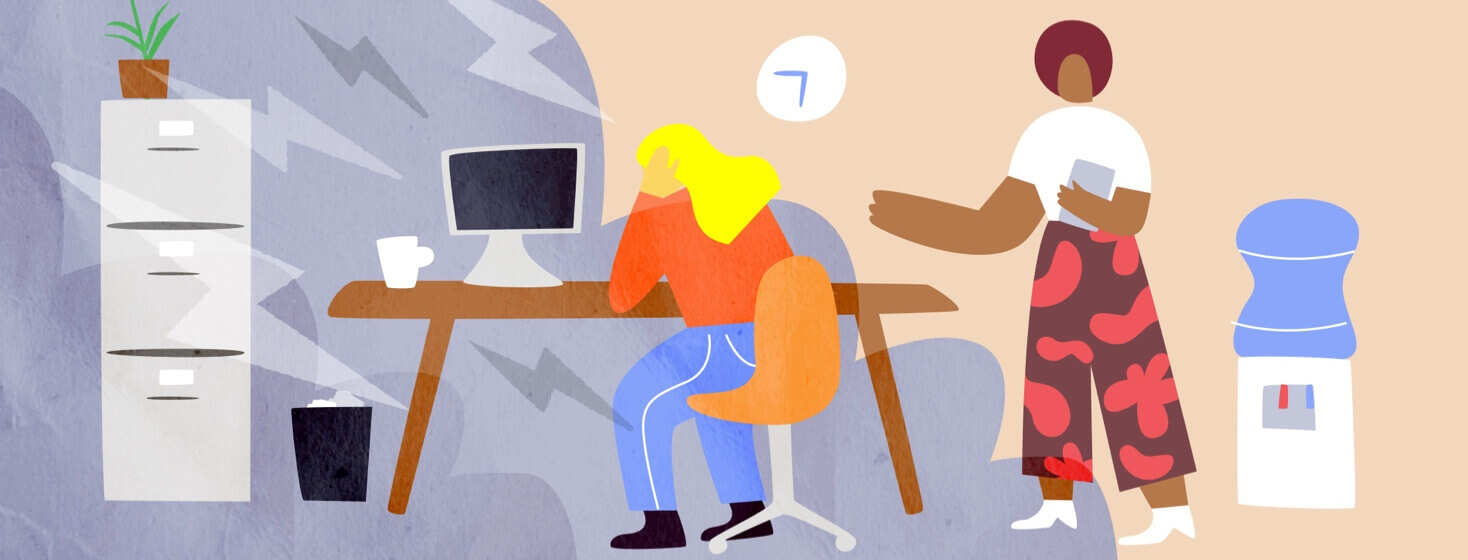Combating the Vicious Cycle of Low Energy and Motivation at Work
How can you get back on track at work in spite of concerns with depleted energy and motivation? What are some ways to cope with the stress of work and depression? I'll share techniques I personally use to improve wellness and help redirect my focus onto work.
Constant cycles of schizophrenia and depression
Part of my job is modeling recovery and documenting the skills used to support peers. I equip them with strategies to improve their wellbeing. Part of my recovery is overcoming schizophrenia and depression.
This can be seen as an oxymoron where these aspects of my life are constantly colliding into each other. One day I'm doing well, but then the next I'm struggling. Yet, I'm accustomed to the fight.
It's hard, very hard, whenever I'm at battle with this ongoing vicious cycle. Still, falling down, but aiming to get back up and try again. This war on low moods, energy, and motivation is not over.
A lack of energy with depression
When the waves of my low energy hit, I feel like I'm trapped in a cave. Stuck to my bed, I'm glued to the sheets that are my blanket of comfort, but also a blanket of dread.
While in the depression tsunami, negative self-talk builds mountains in my mind and creates an overbearing hike for me to get through. This is an ongoing duty and challenge that I must persevere.
No motivation at work
My lack of motivation to document meetings increases and tries to undermine my self-confidence. Those tasks that came easy to me now appear difficult. I have to catch myself when I'm on the downward spiral.
It takes all of me to manage these moments. I recycle my coping tools and dig myself out with the help of my treatment team and self-care activities. Finding the motivation to press forward is a skill that we can exercise.
This or That
Do you struggle with low motivation?
Taking note of new symptoms
Whenever you're on a downward spiral, take note of how you're feeling. Talk to your health team, and don't miss a beat with medication management as recommended by your doctor.
Also, try to stomp out the negative self-talk and practice a relaxation activity to reduce stress and redirect focus.
Medication management with schizophrenia
When my work accumulates it makes me more stressed and depressed. However, I learned how to take my power back. Medication management is a rich method to controlling symptoms. It is crucial that we take our medication as prescribed, understand how to manage missed doses, and know the side effects.
I take medication to help minimize symptoms. Looking at my medication cocktail and regimen is the first step towards regaining my stamina. And if I have concerns, I need to share it with my treatment team.
When medication affects energy levels
Make sure you're taking the meds as prescribed. I've taken doses at the wrong time of day. This impacted my sleeping pattern, and then in turn, my energy at work. Taking medication at the wrong time of day added to my tiredness that fueled the vicious cycle.
Skipped doses and mixing medicines to make up the missed doses caused me a lot of trouble. Mixing morning meds and nighttime meds led to problems and reactions triggering my schizophrenia symptoms.
My lack of sleep, missed doses, combined with taking all my medication to make up for that skipped dose, activated symptoms. After I reset my medication routine with my doctor and got restful sleep I was able to conquer the days ahead.
Combatting negative thoughts
Negative self-talk is depression's best friend. When times get hard, I seem to exasperate these negative thoughts. I think to myself, "I can't do this." I remember every single assignment that is due and get overwhelmed.
To combat negative self-talk I identify it in the moment and change my internal dialogue. My "I can'ts" become "yes, I can!" I kick off my documentation-writing session by listening to motivational speakers, repeating positive statements: "Yes, I can. I can do this..." And, I practice stress reduction techniques that help clear my mind to regain focus, like taking a walk.
Being honest at work and lessening the load
Another strategy I use is to adjust work hours. I might lower my work hours or workload temporarily. I may increase therapy sessions, and I'm sure to articulate my needs and potential solutions to my supervisor. I also keep communication open with my partner and my doctor.
When I can't lower my work hours or caseload, I take more breaks and occasionally work closely with a colleague as accountability partners. I also discuss deadlines and priorities with my supervisor.
Overcoming energy and motivation challenges

You can do this!
The battle is real, and so are your coping weapons. Use them to press forward at work and life, you can win the war against depleted energy, depression, and lack of motivation.
Keep your health team in the loop. Follow your doctor's recommendations on medication management, and don't beat yourself up with negative self-talk. The war is not over, you can still dominate it.
